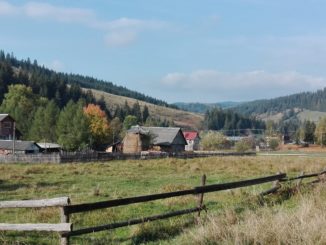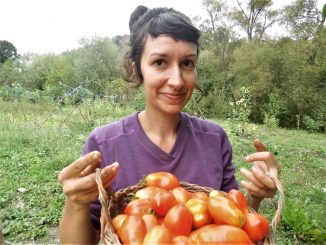Our Partner Organisation Institute for Agriculture and Trade Policy in the USA share their thoughts on the beginning of a Trump administration.
Today marks the beginning of a Trump administration—and with it, a pro-corporate, climate-change-denying, racist, sexist, anti-LGBTQ and xenophobic agenda. So, tomorrow, I will be marching in St Paul, Minnesota to uphold institutions and values dear to me: first and foremost, a functioning democracy, which includes: freedom of the press; inclusivity, openness and respect for other.
As an immigrant to this country, as a feminist and a woman of color— tomorrow I will join my IATP colleagues to march in solidarity with women and allies in the Women’s March on Washington. We will be joined by millions across the country who are banding together with friends, neighbors and colleagues who oppose this agenda. Will you join us?
At IATP we work locally and globally to create more fair and just food, farm and trade systems. My work in agroecology is rooted in feminist practices and for years, IATP has fought to advance agroecological solutions that are rooted in farmers’ knowledge; that put the wellbeing of the rural communities and farmworkers at the center. Now more than ever, our work will be challenged by corporate-driven policies and practices.
The most recent nominee to run the U.S. Department of Agriculture, Sonny Perdue, is an advocate of free-trade agreements, especially in agriculture. It is known that, as governor, ‘Perdue signed a bill to preempt local ordinances related to agriculture, and similar effort could very well be advanced at the federal level to block states and local communities from having a say on agriculture policy’. Farmers and rural communities are facing huge problems including collapsing agricultural prices and enduring direct impacts of climate change. Perdue’s nomination continues a troubling and alarming trend of Trump cabinet appointees with deep ties to corporate and financial interests.
What are your plans to challenge corporate power under a Trump administration?
Join me and IATP in fighting for a more just world that is rooted in opposing free-trade agreements and mega-mergers that benefit the one percent while leaving farming communities and workers impoverished—not just in the United States but around the world. As a water justice advocate, I am marching in solidarity with our indigenous communities and water protectors, for our fracked lands, polluted rivers and depleted aquifers. I am marching for the next generation and for the solutions born out of movements and people like you and me.
Together, we will continue our collective work to build more resilient communities, celebrate our diverse identities where all can thrive, and lift up solutions.
In Solidarity,
Shiney Varghese
Senior Policy Analyst for Water, Agroecology & Global Governance
On 21. January 2017 we’ll march in Berlin at the “We are fed up!” demonstration. At around 6pm CET we’ll do a live broadcast to our IATP colleagues at the Women’s March on Washington. More on the Soup&Talk event after the Berlin demonstration here.







